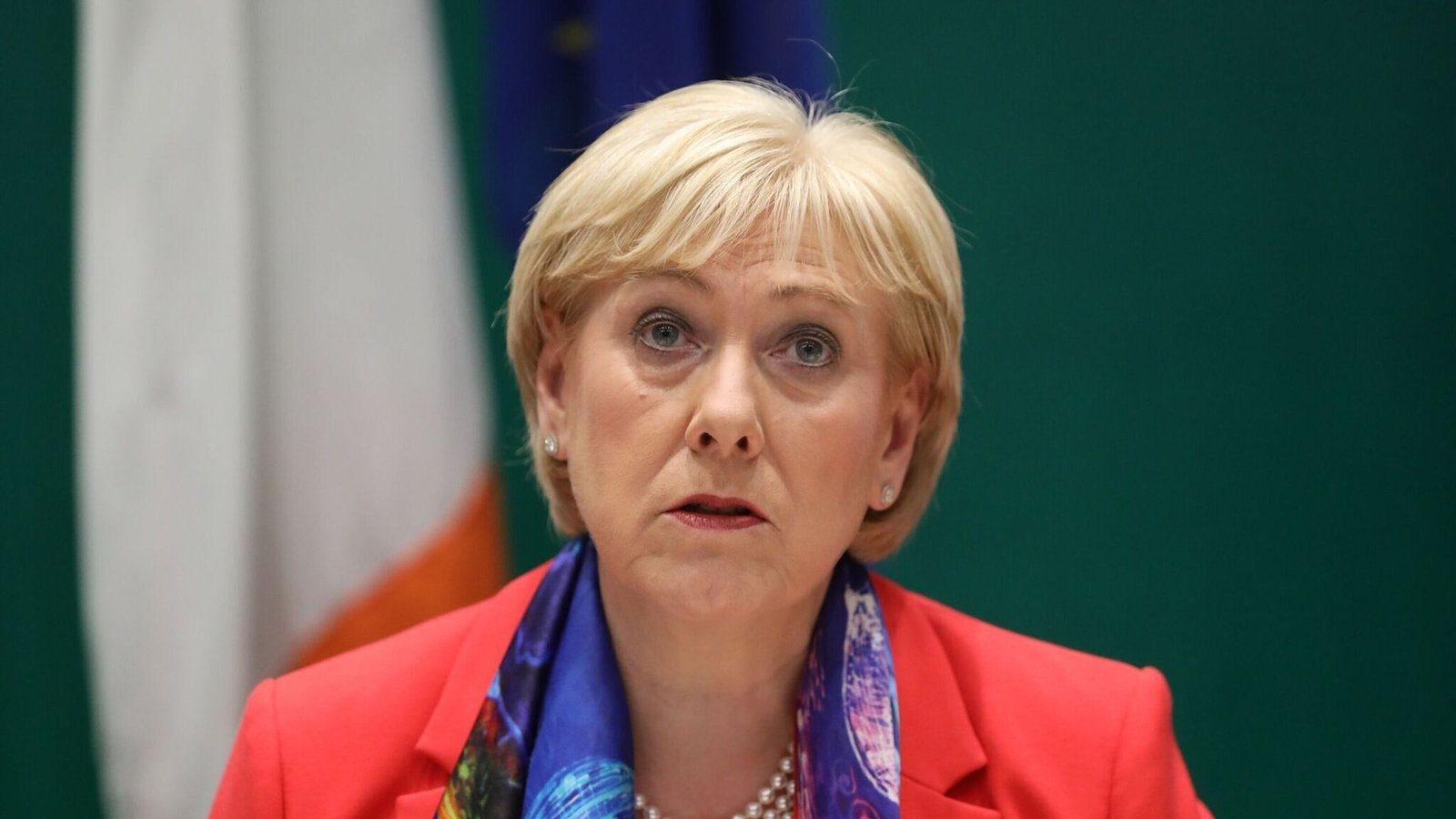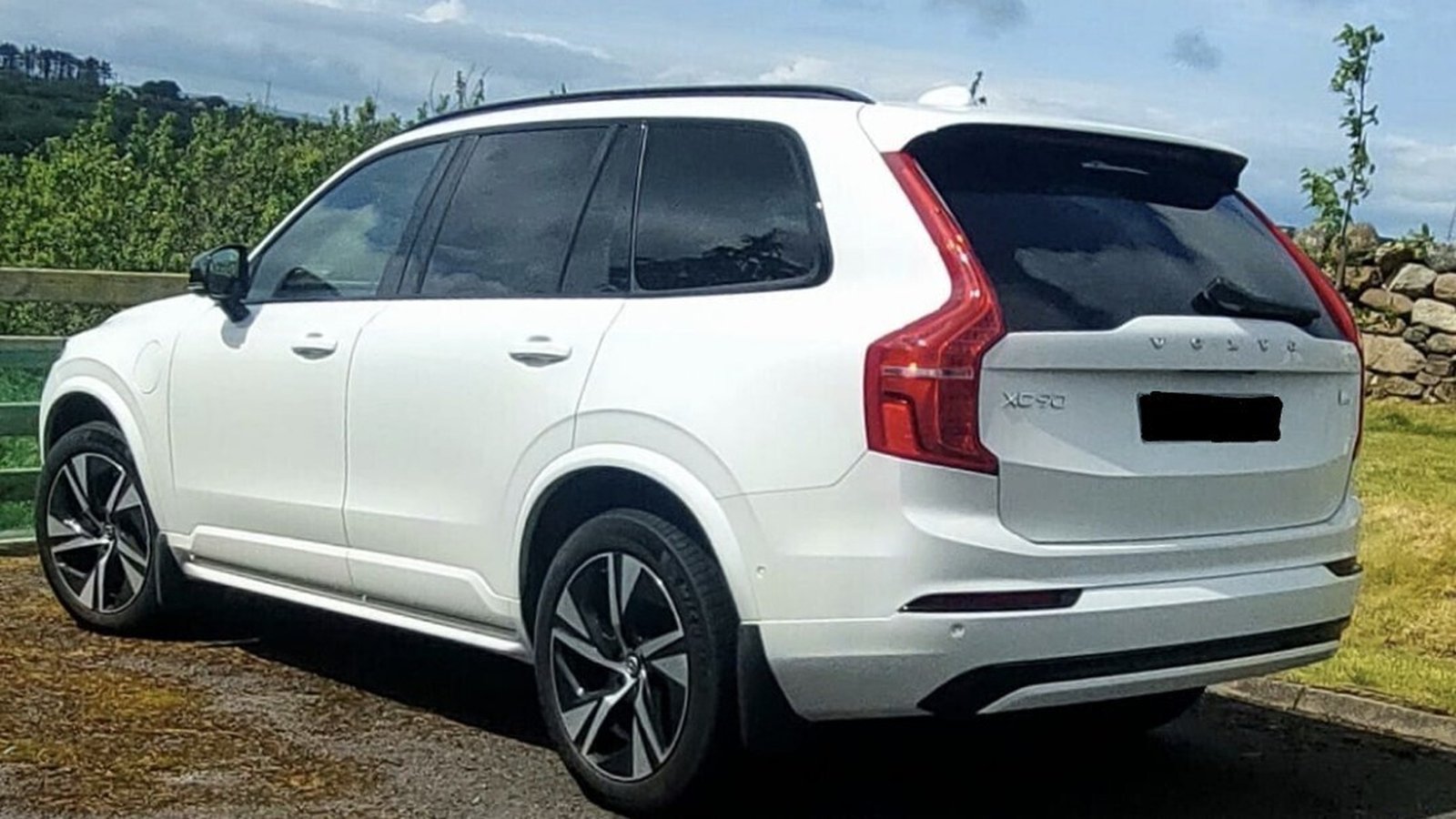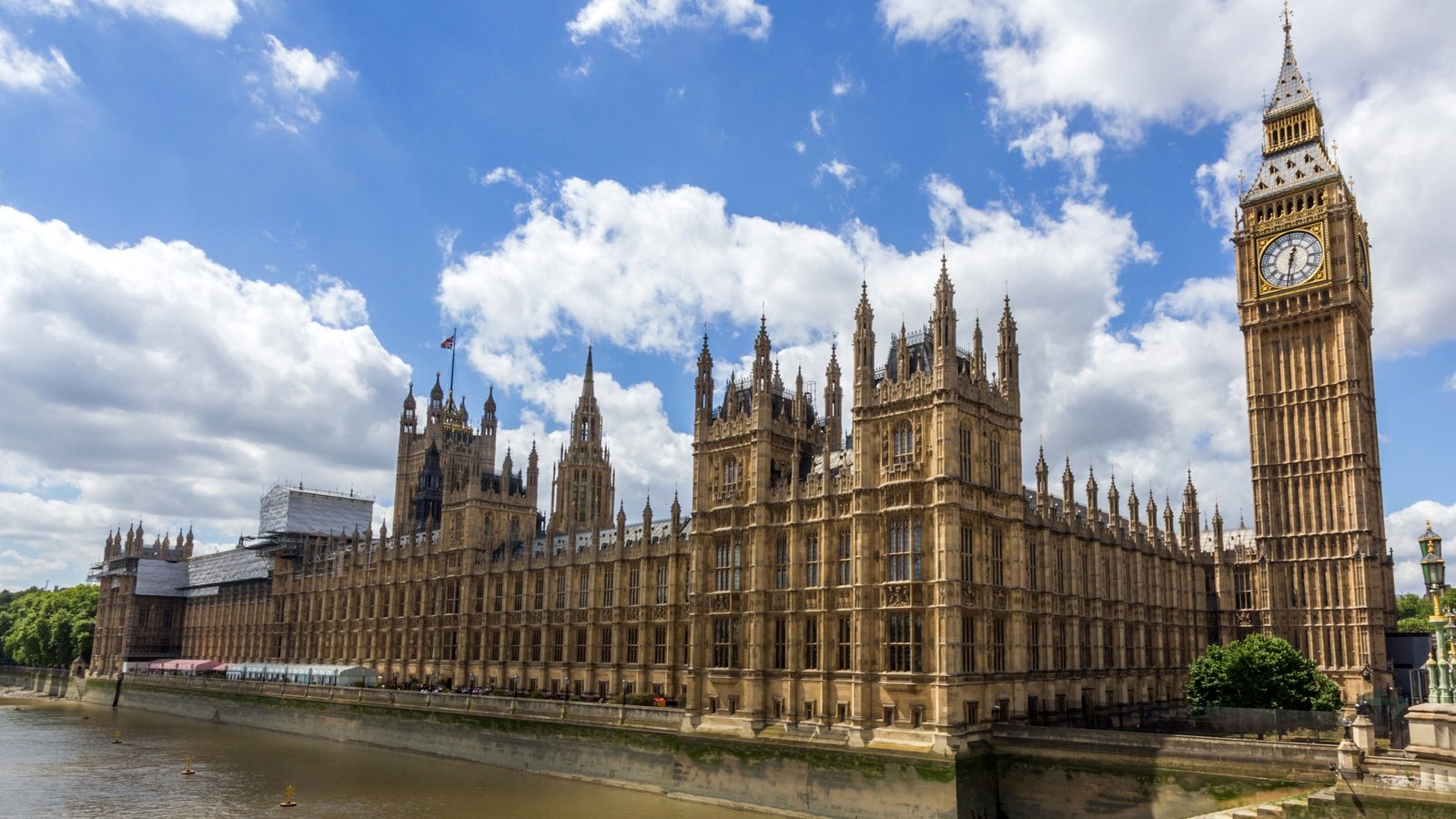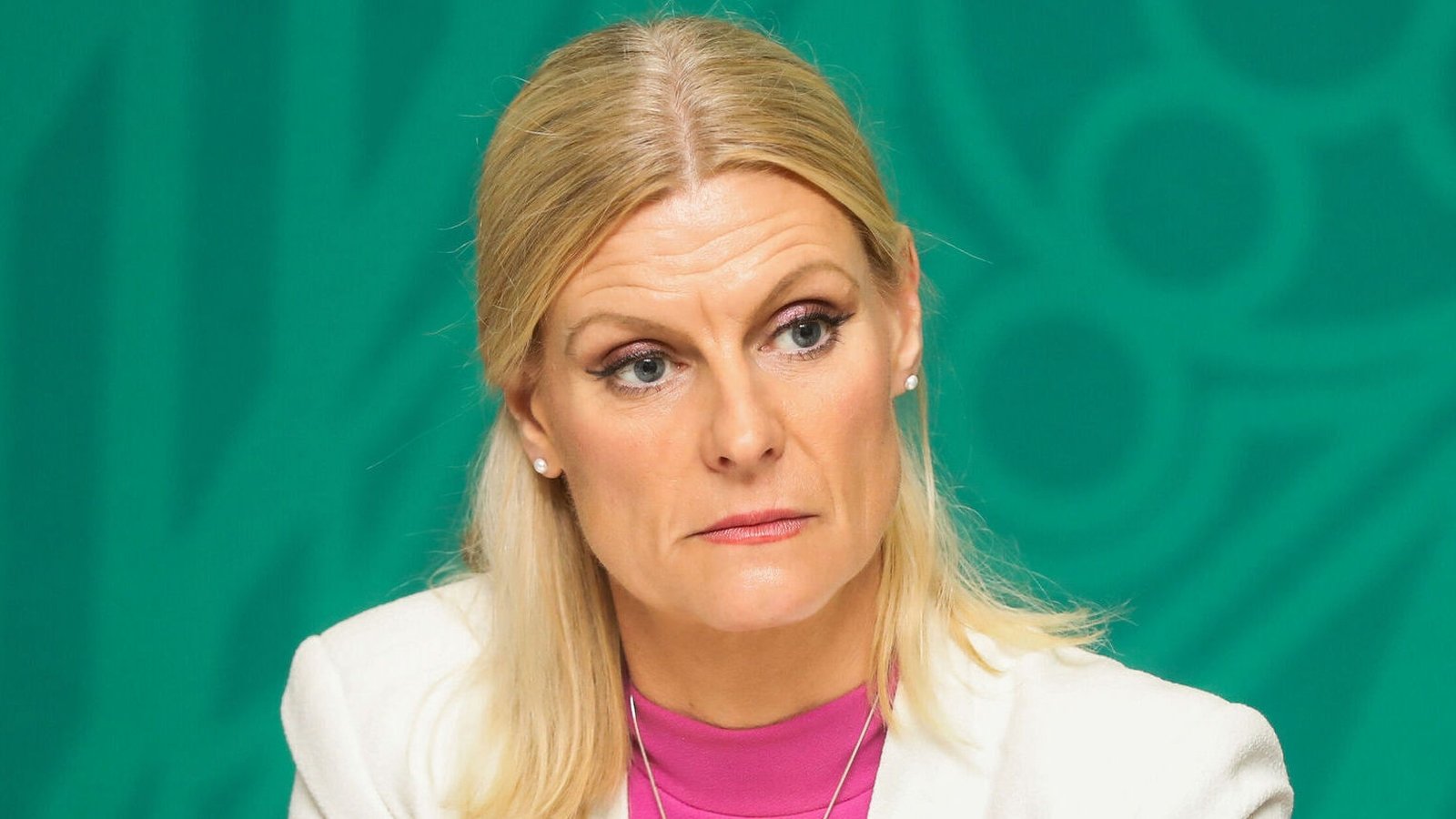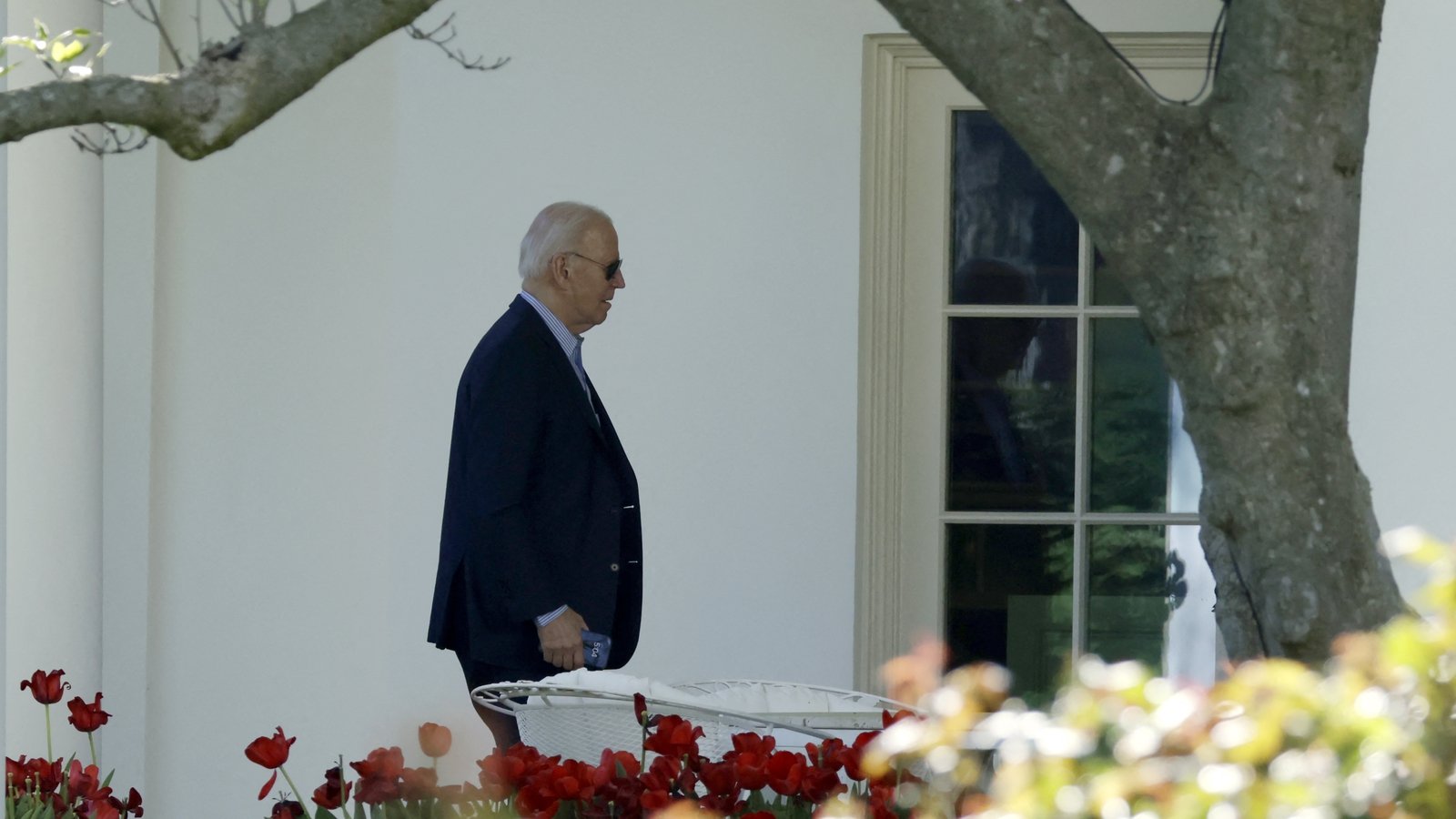Can Ukraine find peace on a Swiss mountain?
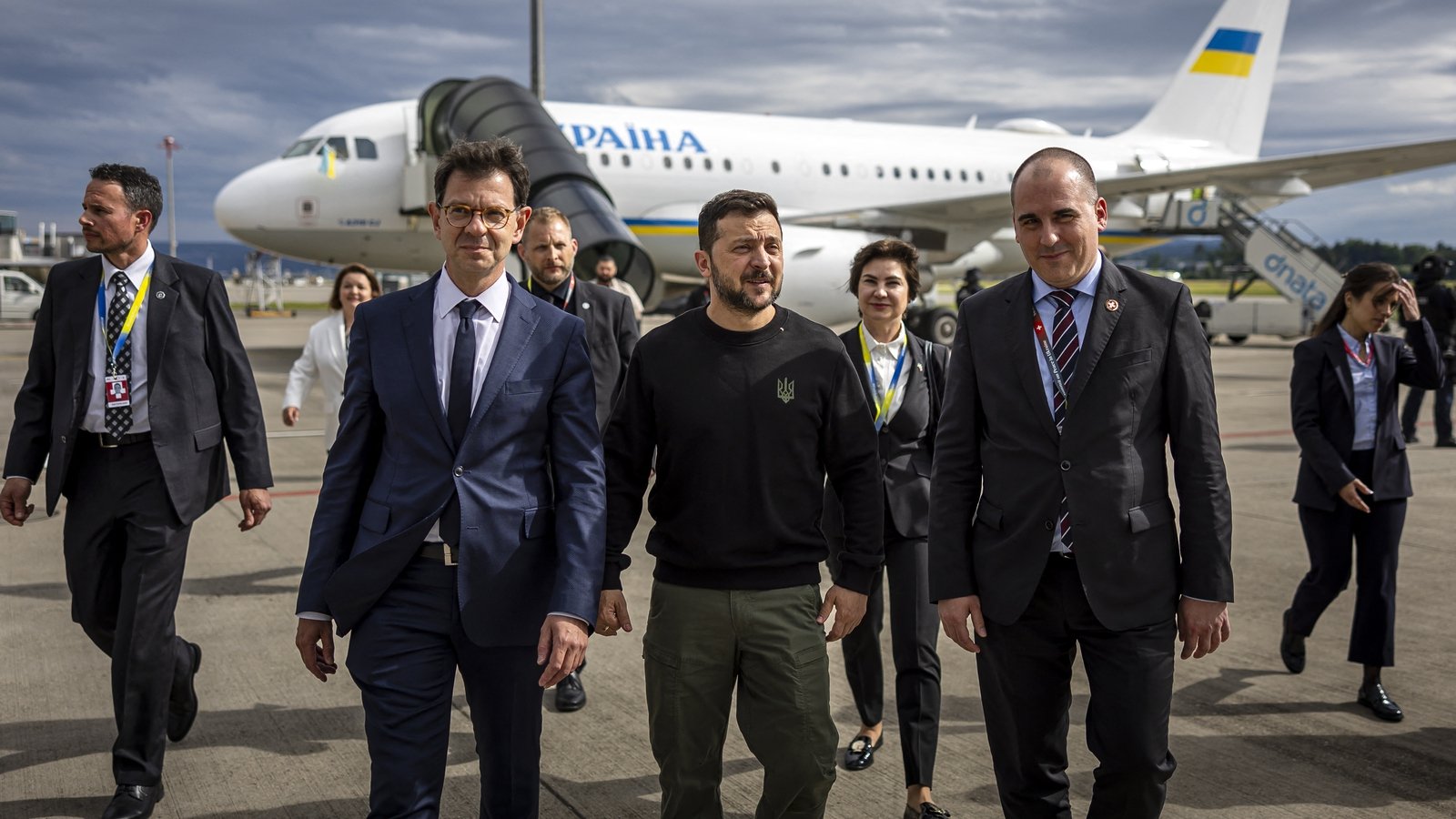
Switzerland is hosting a “summit on peace” this weekend in a bid to start a peace process to end the war in Ukraine. More than 90 countries will be represented at the summit, but Russia will not.
Comments yesterday from Russian President Vladimir Putin suggest any compromise is a long way off.
Swiss army helicopters were patrolling the skies above the mountain resort of Bürgenstock in advance of the summit.
It is a picturesque setting for a high-level diplomatic meeting with the snowy peaks of Switzerland’s central mountains on one side and Lake Lucerne’s clear waters on the other.
But Ukraine will be hoping that this summit will be remembered for more than its postcard scenery.
Over the next two days, world leaders and high-ranking officials will take part in breakout sessions at the Bürgenstock to put forward, as Swiss officials describe, “their visions for a just and lasting peace in Ukraine”.
Ukrainian President Volodymr Zelensky, US Vice President Kamala Harris and many European leaders will be in attendance, including Taoiseach Simon Harris.
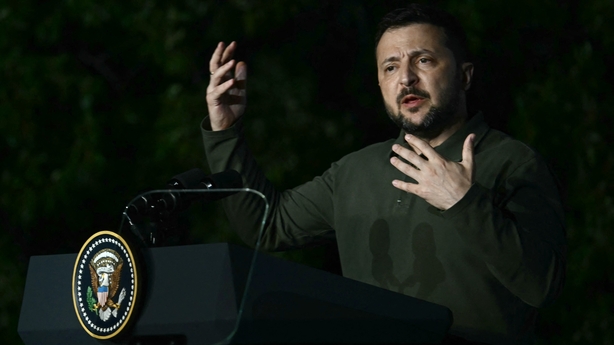
However, delegates will discuss a much narrower agenda than Ukraine had originally proposed in its 10-point peace plan in late 2022, which was the genesis for the summit.
They include food security, nuclear security and key “humanitarian issues” such as prison exchanges and the return of Ukrainian children illegally displaced to Russian-occupied Ukraine or Russia itself.
The Taoiseach will take part in discussions on humanitarian aspects of the conflict, including the return of Ukrainian children.
“While Russia continues its relentless aggression and shows no genuine interest in efforts for peace, it is important that the global community agree on clear principles that must underpin any future peace process,” read a statement from the Taoiseach ahead of the summit.
Mr Harris emphasised that any future peace process must “vindicate Ukraine’s sovereignty” and territorial independence.
China, Russia’s strongest ally, is also not attending.
Brazil, South Africa and India, the three other BRIC countries, are sending envoys to Switzerland, not heads of government.
UN Secretary General Antonio Guterres will also not attend, which is a blow to Ukraine’s hopes for a successful summit. The UN will be represented by its Under-Secretary-General for Political and Peacebuilding Affairs.
Yesterday, Russian President Vladimir Putin delivered Moscow’s most concrete offer to end the war.
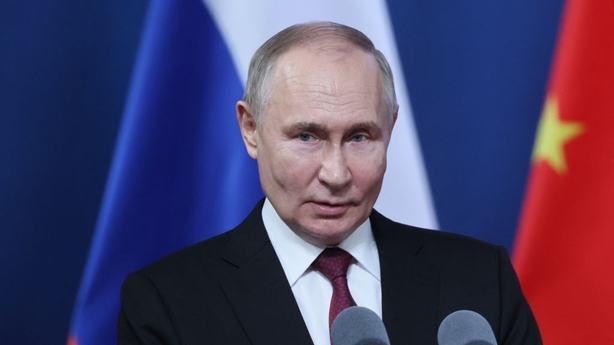
But Mr Putin’s terms – demanding control of four eastern Ukrainian regions, including territory that Russian forces have not occupied since the start of the full-scale invasion – are unacceptable to Ukraine.
The Swiss summit also follows the conclusion, yesterday, of the G7 summit in Italy where seven world leaders, in the company of Mr Zelensky, agreed to use $50bn in frozen Russia assets as a loan for Ukraine.
Mr Putin called the G7’s plan “theft” and that it would “not go unpunished”.
Twenty-eight months into Russia’s invasion, tension between Russia and the West over the war in Ukraine has never been greater.
So what can be achieved this weekend without the country that started the current war?
Quite a bit, if you listen to the Swiss government, which is hosting the event at Ukraine’s request.
Earlier this week, Swiss President Viola Amherd told reporters that the summit would “lay the groundwork for a future peace summit that would involve Russia”.
Switzerland did not formally invite Russia because, according to Swiss officials, Moscow had indicated publicly on a number of occasions that it would not take part.
Swiss foreign minister Ignazio Cassio said on Monday that a future peace process must involve Russia and that it is not a matter of “whether Russia will be on board but when Russia will be on board”.
“We have always been open about inviting Russia,” he said.
Swiss officials have said that they are in regular contact with Russia about the conference via their embassy in Moscow but Kremlin press spokesperson Dmitry Peskov said that hosting the summit without Russia is an “absurd activity”.
“I think that the conference might be a bit of a diplomatic success for Ukraine, but only slightly,” Pavel K Baev, a political scientist, told RTÉ News.
Mr Baev, a Russian policy expert at the Peace Research Institute Oslo, said that the past week’s events, including a recovery conference on Ukraine in Berlin, the G7 summit and the 80th anniversary of the D-Day landings attended by Mr Zelensky “might generate more positive impact for Ukraine than the summit”.
Three key topics to be discussed at summit
Three key topics from Mr Zelensky’s 10-point “peace formula” will be discussed at this weekend’s summit. And they are areas where broad consensus among the attending delegates could be achieved.
These include ensuring nuclear safety around Ukraine’s Zaporizhzhia nuclear power plant, occupied by Russian forces since March 2022.
Experts from the UN’s International Atomic Energy Agency (IAEA) are stationed at the nuclear plant as observers, which is the largest in Europe.
Though the plant’s main nuclear reactors have been shut down since April, the IAEA has warned that nuclear safety at the plant is “already compromised”.
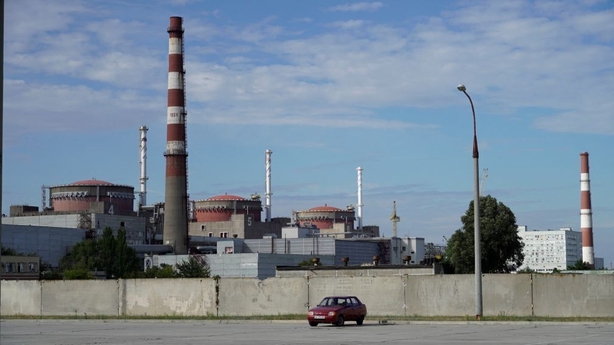
Fighting and shelling has occurred close to the plant on a number of occasions over the past two years and, in April, just one week after the reactors were switched off, a series of drone attacks hit the reactor structure. Luckily, no serious damage was registered.
Russia blamed Ukraine for the drone attacks, an accusation that Ukraine denied.
The summit’s Swiss organisers are urging Russia to “step up its involvement with the IAEA and Ukrainian authorities” to ensure nuclear safety and security on the ground. Discussions will also revolve around ensuring nuclear safety at Ukraine’s other nuclear power plants.
Secondly, the issue of food security and free navigation of the Black Sea will be discussed.
Turkey was instrumental in brokering the Black Sea Grain Initiative in July 2022 between Russia and Ukraine, which enabled commercial ships carrying grain and fertiliser to safely transit the Black Sea from Ukrainian ports.
However, Russia quit the deal after a year, claiming that its own food and fertiliser exports faced obstacles, and that not enough Ukrainian grain was going to developing countries.
Turkey is likely to play a key role in discussions around the topic of food security this weekend and it will be of interest to many attending delegates from the global south.
Ukrainian commercial ships are able to transit the route, but they stick to Romanian and Bulgarian waters as a matter of caution.
Ensuring safe passage for vessels carrying foodstuffs that are bound for Africa and Asia would help to stabilise food prices on the global market and strengthen food security in poor countries.
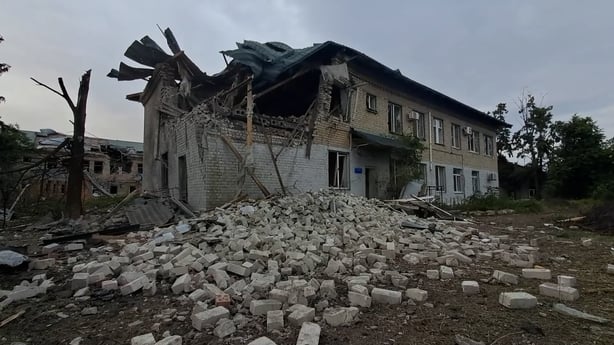
And, thirdly, “humanitarian issues”, as Swiss officials have described them, are on the agenda.
These include discussions around prisoner exchanges and the return of thousands of Ukrainian children who were displaced by Russian authorities.
Ukraine has said that more than 16,000 children have been illegally transferred to Russia or Russian-occupied territories in Ukraine since the start of the invasion.
In March 2023, the International Criminal Court issued an arrest warrant for Russian President Vladimir Putin and Russia’s commissioner for children’s rights, Maria Lvova-Belova, for the alleged deportation of hundreds of Ukrainian children to Russia.
Russia has not denied that its authorities have transported thousands of children from Ukraine to the Russian Federation and in some cases, its officials filmed the removal of children from Ukrainian children’s homes.
However, the restoration of Ukraine’s “territorial integrity” based on its pre-2014 borders, is not on the agenda despite it being one of the core demands of Mr Zelensky’s 10-point peace plan.
Discussions around the return of Crimea, forcibly annexed by Russia in 2014, and all territory occupied by Russia since the start of its full-scale invasion in February 2022 (Russian forces currently occupy 18% of Ukraine) will not be formally discussed.
Ukraine’s 10-point peace plan also called for the withdrawal of all Russian forces from Ukrainian territory and the establishment of a post-war tribunal to investigate war crimes.
“In order to make the format as broad as possible, there is a need to focus on the issues which are really of significance for many states, including food security, including nuclear safety, some humanitarian aspects,” said Mr Baev.
Last month, China and Brazil proposed a joint six-point peace plan that would involve both Ukraine and Russia. But that proposal also shied away from any discussion of what to do with Ukrainian territory occupied by Russia.
Swiss officials hope that a joint communiqué can be released on Sunday evening summing up the two-day event. A good outcome for Ukraine would be if broad consensus on the three topics can be reached by delegates.
But the likelihood of a second summit with Russia, where a return to Ukraine’s pre-2014 borders is discussed, seems a long way off in light of Mr Putin’s demands yesterday.
The summit also comes at a bad time for Ukrainian forces at the front. Russian forces have gained more momentum in recent months, occupying a number of settlements in eastern Ukraine.
“You want your diplomacy to be proactive, you want to push forward with your peace ideas,” said Mr Baev.
“If the military situation is as it is, your diplomacy essentially is doomed to yield very little.”

